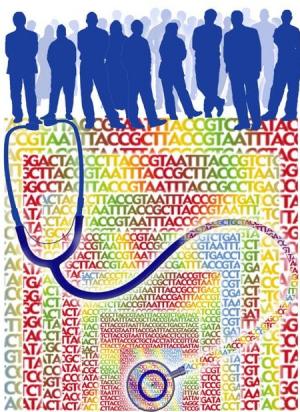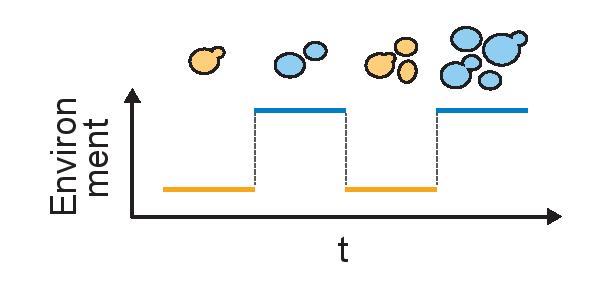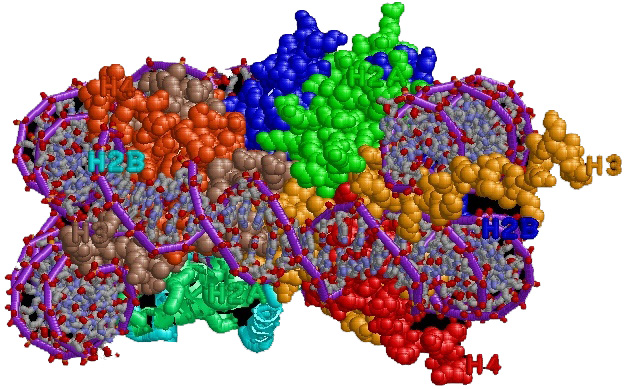
The genetic contribution to the quantitative variation of physiological traits (such as height, cholesterol level, disease for humans, or agronomical and nutritional yield for crops) is generally complex. Multiple genes are involved, which contribute often non-additively, and their contribution is usually relevant to specific environmental conditions. We conduct experimental investigations on a very powerful single-cell organism, the baker's yeast S. cerevisiae, to understand the architecture and extent of this complexity.
(Principal Investigator: Gaël Yvert)

We are developping a novel approach of genetics by studying individual cells, which we consider as the particles of living systems. By measuring and analyzing numerous single-cell traits, we seek to describe the probabilistic effects that genes can have on molecular and cellular regulations.
(Principal Investigator: Fabien Duveau)

Cells can cope with dynamic environmental changes by regulating up or down the expression of their genes. To reveal fundamental mechanisms of adaptation to dynamic conditions, we investigate how new mutations and natural selection shape the evolution of gene expression regulation.
(Principal Investigator: Gaël Yvert)

DNA is not the sole source of chromatin-based heritable information. We therefore study how epigenetic marks carried on individual nucleosomes vary within a species, and their potential contribution to trait variation.


 Français
Français  English (UK)
English (UK) 